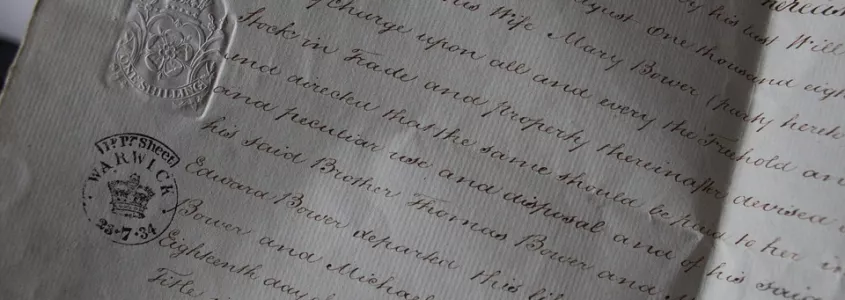
Table of contents
It often happens that, when an inheritance is distributed, one of the heirs considers that his or her rights have been violated and that, as a result, he or she is suffering a certain prejudice. In these cases, contesting a will is completely legitimate. However, a series of considerations must be taken into account so that the resolution is favourable to the affected party.
How to contest a will
The first thing to say is that any person who has the status of legal heir has the right to contest the will in the event that it contains errors or if they consider that it is prejudicial to them and violates their rights in this respect. In other words, he or she has the legitimacy to take legal action to correct the situation.
The errors to which we have referred can revolve around two aspects. Specifically, they are these:
1. Partially or totally erroneous will. This type of error occurs when, for example, one or more of the legitimate heirs are disinherited in an unjustified manner, i.e. without complying with the conditions stipulated in the law for doing so.
2. Will with formal defects. In this case, the document is invalid because it was not presented in the correct form, which is detrimental to one or more of the heirs. These irregularities, until they are corrected, prevent the validity and legitimacy of the will.
In order to answer the question of how to contest a will, it must be emphasised that it is absolutely essential that a legally valid reason be given at the time of the claim.
In this respect, a will can be considered invalid if the testator's incapacity is proven. According to the law, it is necessary that the testator is not in possession of his or her mental faculties, which must be ratified by a judge on the basis of a medical report, or that he or she is under 14 years of age.
On the other hand, the testament will also be considered null and void in the event that the testator, at the time of drafting and ratification before the notary, has been deceived or coerced in order to create certain provisions in the document.
Finally, this can also occur if the will is not executed in accordance with the law. For example, if, at the time of signing and ratification, there are not a sufficient number of eyewitnesses, the will is considered invalid.
What are the grounds for contesting a will?
The legislation in force includes a series of assumptions when contesting a will. In the previous lines we have already referred to some of the most important ones, but there are more. Therefore, we are going to explain them below and, in addition, we will add a series of considerations that must be taken into account by the heirs when doing so.
Who is entitled to contest a will?
The law only provides that the legal heirs or, failing that, the legatees favoured in a previous will of the testator can contest the will after its reading. On the other hand, the law also states who cannot proceed with this action. Specifically, these are those who, expressly or tacitly, have proceeded to recognise the validity of the will by means of some act that can be considered valid. For example, this could be accepting a certain part of the value of the inheritance.
What is the time limit for contesting a will?
The time limit for contesting a will is not usually a problem if the legal conditions stipulated for doing so are met. This is mainly due to the fact that the law contemplates a limitation period of 15 years, which must be counted from the day on which the testator died or from the moment in which the heir received a valid and authorised copy of the will that he or she wishes to contest. It should be remembered, in this regard, that if the conditions specified in the previous point are met, the right to challenge ceases to be recognised regardless of the period of time that has elapsed.
¿What to expect from the will contesting process
A will contest can end in many ways. The first of these would be where the heirs reach an agreement among themselves to withdraw the claim and, therefore, the judicial process ends immediately. Normally, however, it will go to trial and a judge will have to decide on the basis of the evidenc
The judge, after analysing the will in terms of form and content, the evidence provided and other data that may be of interest to him in order to reach a decision, will determine that the will is valid as it stands, so that the person who filed the lawsuit will not be considered as a legitimate heir. On the other hand, he may declare it to be null and void in its entirety, in which case the heirs, if no agreement is reached, will have to divide the inheritance in the arbitrary manner stipulated by law. Finally, it is also possible that he/she may consider that a part of the inheritance is not valid, and will therefore declare it null and void and the distribution will also have to be carried out according to the law.
How much does it cost to contest a will?
How much it costs to contest a will is another question to consider before contesting a will. Even in the simplest cases, it can be quite costly. However, it is impossible to speak of an exact price as most law firms consider it as a 'no-claims procedure'.
In any case, in order to give you as approximate an idea as possible, the lawyer's fee is usually a certain percentage of the total value of the inheritance or, failing that, of the part corresponding to one of the interested parties and which he/she wishes to contest. In addition, 21 % VAT must be added to this figure.
In addition to the lawyer's fees, the statutory court fees must also be included. In most cases, for this type of procedure, these are set at approximately 400 euros, although this figure may vary. Similarly, the fees of the solicitor and any powers of attorney for lawsuits that may have to be granted must also be added. On average, both services are usually around 600 euros, an amount that is also subject to 21% VAT.
In short, contesting a will can be a lengthy and costly process and can only be done within the frameworks and assumptions stipulated by law. However, if it is quite clear that one of the heirs has been harmed, and always taking into account the value of the inheritance and his or her share, it can also be quite advisable and beneficial. In any case, it is best to contact a lawyer specialised in inheritance and wills who will study the situation and offer professional advice.

"Anywhere in Spain"
With our online appointment system you will have immediate advice without the need for face-to-face visits or travel.
One of our lawyers specialized in your area of interest will contact you to formalize an appointment and make your consultation by video call.

Es importante tener un abogado cerca cuando tienes un testamento de por medio. Hay muchas cosas que no podemos saber como ciudadanos y cuando surgen los problemas es demasiado tarde. Por ello es fácil confiar con un gabinete de abogados cuando ya te han solucionado varios problemas.
Si en un testamento de uno de los progenitores , un heredero ha quedado muy perjudicado porque éste quedará compensado el dia de mañana con el testamento del otro progenitor . Habria alguna manera de garantizar ésta situación para evitar riesgos el dia de mañana por impugnación del segundo testamento por parte de otro de los herederos ? .Por ejemplo con un documento ante notario de uno de los progenitores que confirme que la intención de los dos progenitores es igualar a todos los hijos entre los dos testamentos aunque por separado existan grandes diferencias .. Gracias
Add new comment